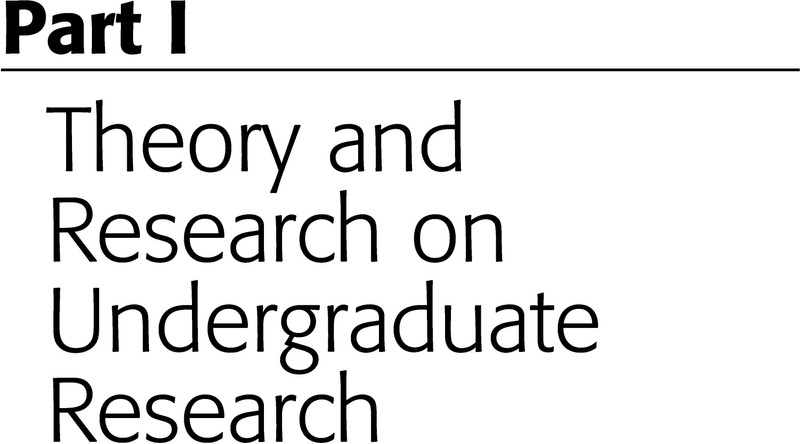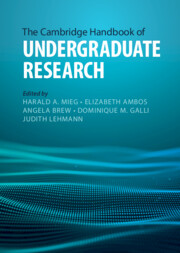Book contents
- The Cambridge Handbook of Undergraduate Research
- The Cambridge Handbook of Undergraduate Research
- Copyright page
- Contents
- Figures
- Tables
- Contributors
- Foreword
- Foreword
- 1 Introduction
- Part I Theory and Research on Undergraduate Research
- Part II Implementation, Approaches, Methods
- Part III Disciplines
- Part IV International Perspective
- Part V Avenues for Developing Undergraduate Research
- Index
- References
Part I - Theory and Research on Undergraduate Research
Published online by Cambridge University Press: 11 August 2022
- The Cambridge Handbook of Undergraduate Research
- The Cambridge Handbook of Undergraduate Research
- Copyright page
- Contents
- Figures
- Tables
- Contributors
- Foreword
- Foreword
- 1 Introduction
- Part I Theory and Research on Undergraduate Research
- Part II Implementation, Approaches, Methods
- Part III Disciplines
- Part IV International Perspective
- Part V Avenues for Developing Undergraduate Research
- Index
- References
Summary

- Type
- Chapter
- Information
- The Cambridge Handbook of Undergraduate Research , pp. 21 - 84Publisher: Cambridge University PressPrint publication year: 2022

